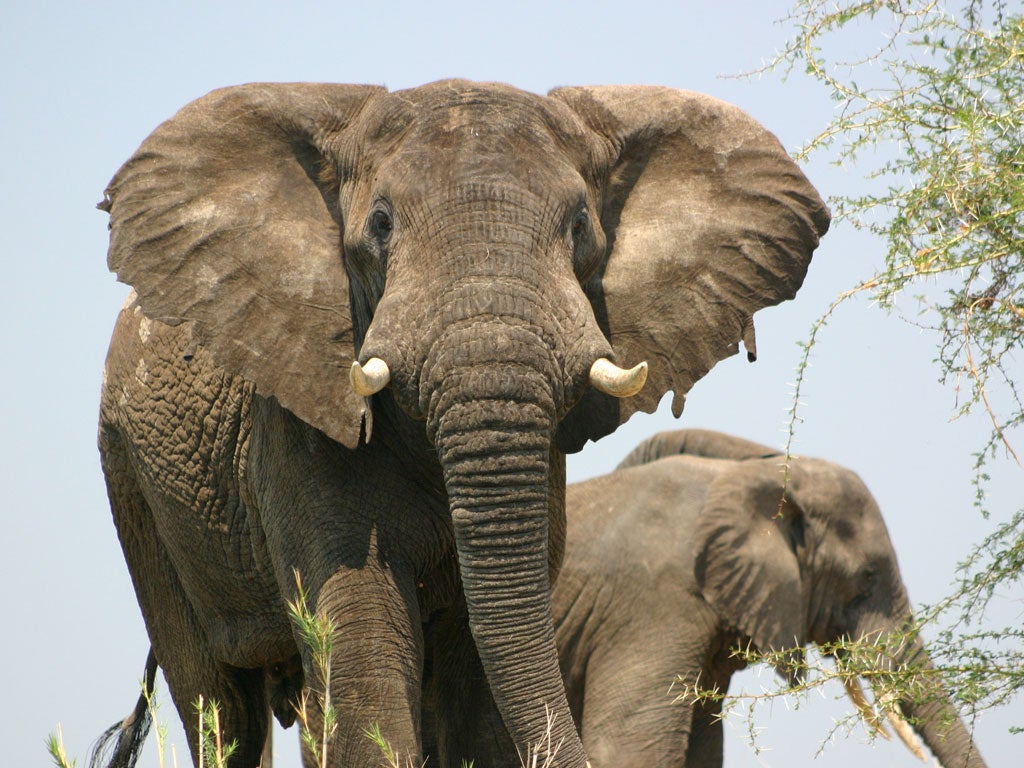Zimbabwe elephants poisoned in cyanide attack
At least 80 elephants have been killed for their ivory tusks by poachers

Your support helps us to tell the story
From reproductive rights to climate change to Big Tech, The Independent is on the ground when the story is developing. Whether it's investigating the financials of Elon Musk's pro-Trump PAC or producing our latest documentary, 'The A Word', which shines a light on the American women fighting for reproductive rights, we know how important it is to parse out the facts from the messaging.
At such a critical moment in US history, we need reporters on the ground. Your donation allows us to keep sending journalists to speak to both sides of the story.
The Independent is trusted by Americans across the entire political spectrum. And unlike many other quality news outlets, we choose not to lock Americans out of our reporting and analysis with paywalls. We believe quality journalism should be available to everyone, paid for by those who can afford it.
Your support makes all the difference.At least 81 elephants have been killed by poachers for their ivory tusks in cyanide attacks across a vast western national park.
The industrial cyanide has been used to poison a remote water hole in Zimbabwe's largest game park, also killing smaller animals and the predators feeding on them.
Nine poachers have now been arrested after being tracked to a cache of hidden ivory in the park.
Tourism Minister Walter Mzembi, in Harare Tuesday after touring Hwange National Park, said more elephant carcasses had been found after more than 40 were discovered earlier in the month.
Zimbabwe's newly-appointed environment minister Saviour Kasukuwere has vowed harsher jail penalties for poacher, according to state media.
The number of elephants being killed for their tusks has seen a steady increase in recent years.
A family of 11 elephants were killed in January this year by poachers in Kenya's Tsavo East National Park.
The International Fund for Animal Welfare reported the slaughter of 400 elephants between January and March 2012 at the Bouba Ndjida National Park in Cameroon, leading to animal rights groups warning that poaching levels could be worse than in the 1980s.
Additional reporting by AP
Join our commenting forum
Join thought-provoking conversations, follow other Independent readers and see their replies
Comments